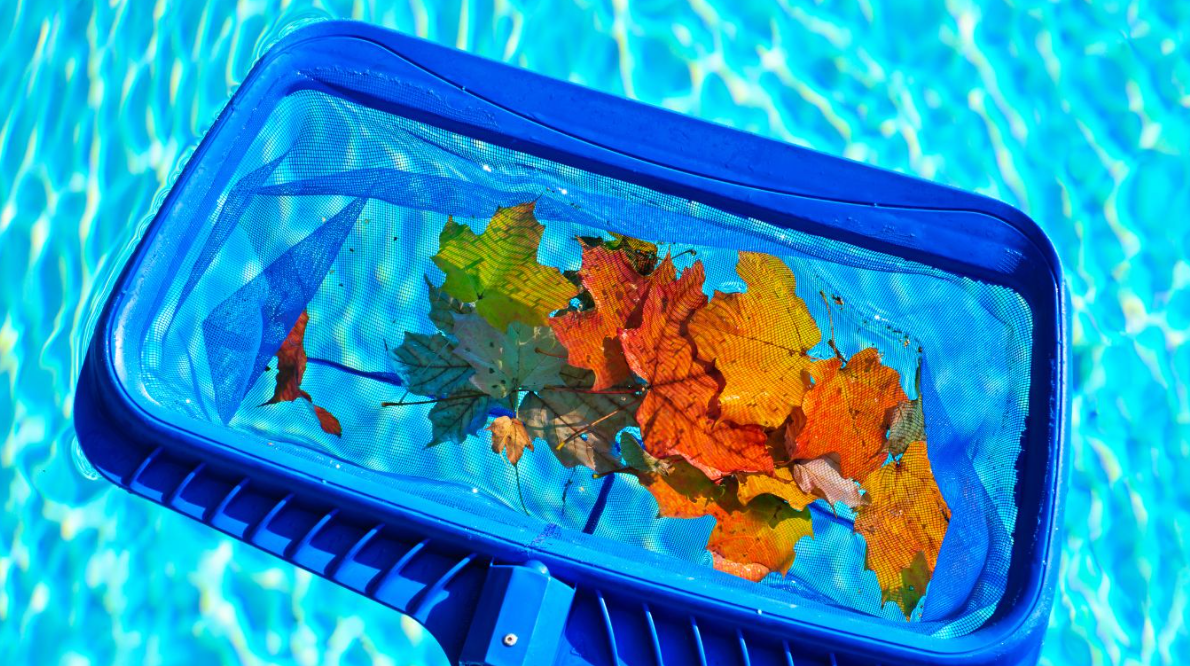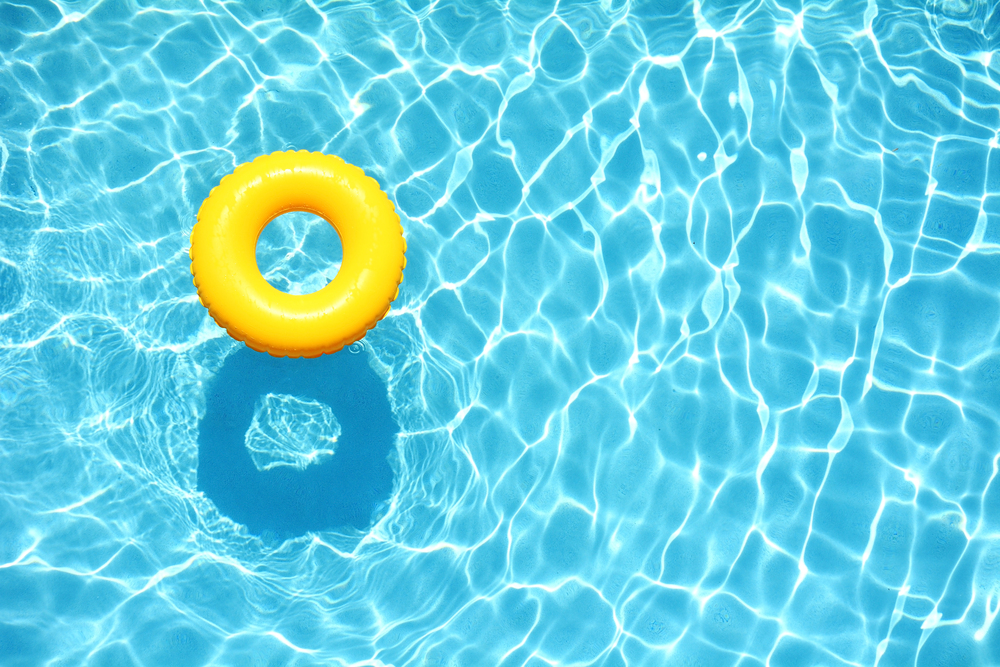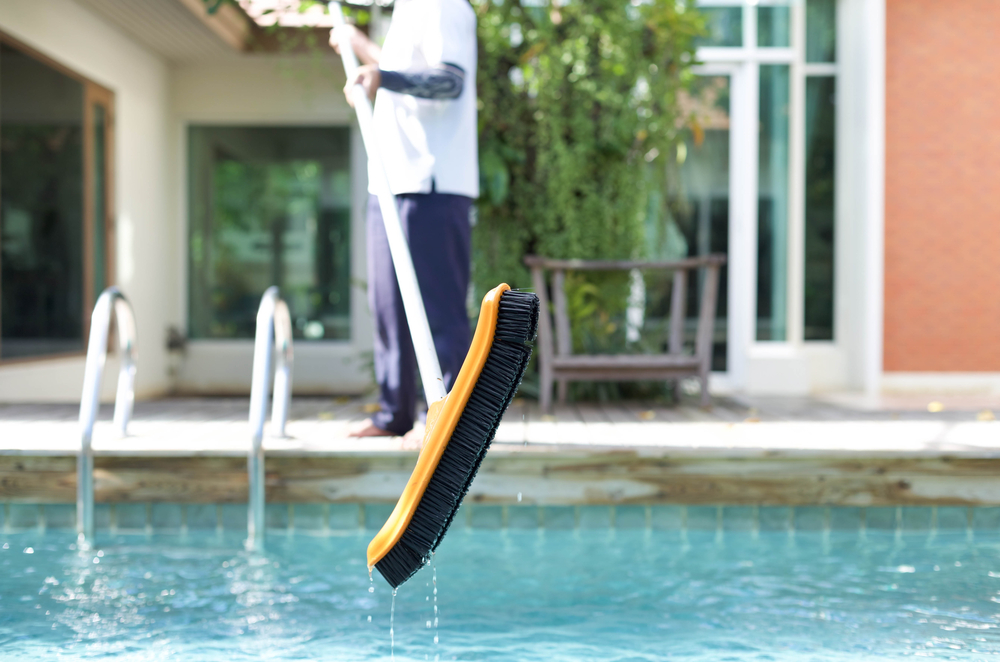Six Tips for Winterizing your Pool
It may have taken us a while down here in Georgia, but the leaves are finally on the ground and there is a distinct chill in the air. Chances are that no one will be taking a brisk dip in the pool this time of year, so now is when you will want to have your pool winterized.
Many pool owners and professional Atlanta pool maintenance services even get a head start on winterizing pools before the leaves start to drop, but as long as it is done before the temperature consistently dips below freezing, your pool will be in good shape.
Why Do I Need to Winterize My Pool?
Two reasons: ice and gunk.
Ice is the biggest problem. Since frozen sheets or blocks of ice expand as they form, they can easily put pressure on your pool’s equipment lines or on the pool walls themselves. Let these ice blocks freeze and refreeze of their own accord all winter, and some of your most expensive components may be riddled with cracks come spring.
The second concern is allowing gunk to sit in your pool all winter. By cleaning it thoroughly and giving it a healthy dose of winterizing chemicals, your pool will be easier to open next spring.
With these two benefits in mind, here is what you need to do:
Get the Water Perfect
You will want the water’s chemical balance to be at optimal levels.
- pH = 7.6-7.8
- Alkalinity = 80-100
- Calcium hardness = 150-250
You will also want to add a chlorine shock tablet to wipe out any lingering microorganisms. Shock the pool until it is above 10 ppm and preferably below 12 ppm, and then allow it to come down to normal levels, which are typically around 1.5-3.5 ppm.
You can also simply take a sample of your pool water to an Atlanta pool maintenance specialist for their own chemistry adjustment recommendations.
Take Out All Your Equipment
The less equipment in your pool during the winter, the less things ice crystals can wreak havoc on. Remove any ladders, handrails, slides, heating elements, skimmer baskets, cleaning drones and anything else not needed over the winter.
With your way clear, you can thoroughly skim and vacuum out every last bit of debris from both above and below the surface of your pool.
Lower Water
At this point, you will want to lower the water to a point where it no longer cycles through your pump return, preferably at least three inches to five inches below the lowest intake. This keeps water from entering your pump system and freezing.
Backwash Your Filter, and Drain All Other Lines
Backwash your filter, and then remove, clean and store, any DE or cartridge units to protect them over the winter. Remove all drain plugs and let the water drain out. You can also blow a Shop Vac or air compressor through the lines to get out the last bits of moisture.
If you have a chemical feeder, safely drain and empty it using proper safety equipment.
Add Winterizing Chemicals, Cover, and Wait
Balance your water one final time, and then add the winterization kit per instructions.
Winterizing chemicals are primarily algaecides, and most also contain a non-chlorine sanitizer since chlorine can damage plastic materials over the winter. Always check that the winterization kit fits your pool type, liner type and will not react with the cover you use.
Finally, tether a large air pillow to the center of your pool, and then cover the whole surface with a winter-grade pool cover that can block sunlight and air. The air pillow will prevent a solid sheet of ice from forming, and it will also push debris from the center of the cover to the sides.
Check your pool regularly throughout the winter for signs of algae growth or freezing expansion.
Get a Professional Atlanta Pool Maintenance Service to Winterize Your Pool
Winterizing your pool is a fair amount of hard work, and doing it wrong can mean expensive repairs come spring time. If you would like help winterizing your pool or if you would like someone to complete the entire process for you, then contact your local Atlanta pool maintenance service .
Pinnacle Pool Services can examine the chemistry of your water, help you drain lines or winterize your pool from start to finish. Contact us via the number above or the quick form to the right to start winterizing your pool today.

OUR LOCATIONS
5325 Piedmont Rd NE
Atlanta, Ga 30305
5805 State Bridge Rd #176
Johns Creek, GA 30097
12850 Hwy 9
Alpharetta, Ga 30004
3765 Namasco Dr. Suite F
Suwanee, GA 30024




